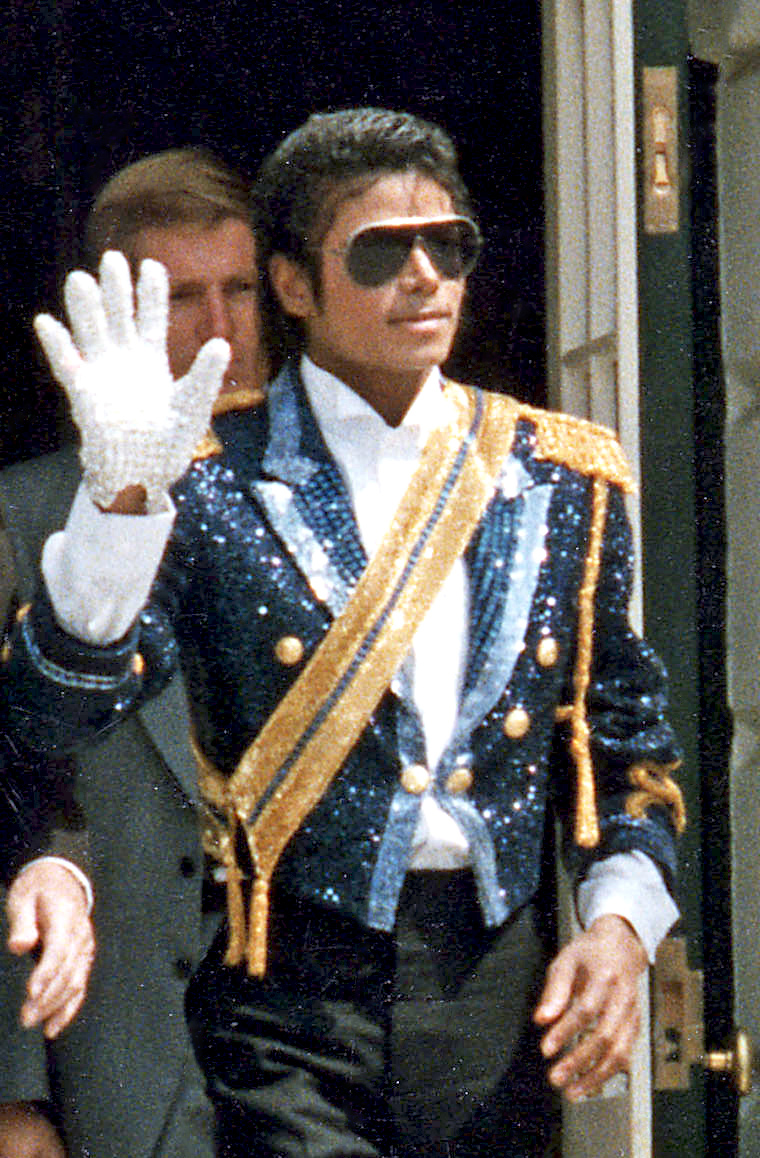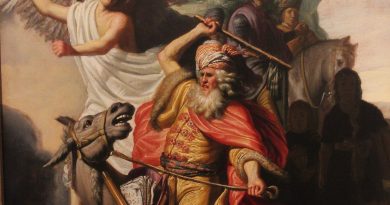Balak 5779 – Can You Separate the Art from the Artist?
Is it OK to appreciate art that comes from very flawed artists?
Knowing what went on at Neverland, should we still listen to Michael Jackson’s music?
Knowing about the accusations against Woody Allen, should we still watch his films?
Should we spend money to see movies produced by Weinstein Films, knowing about Harvey Weinstein and how that triggered the #metoo movement?
Given the serious charges that have been made against Rabbi Shlomo Carlebach, is it appropriate to keep using his melodies in synagogues?
Should it be OK to play the music of Wagner in Israel?
In other words, can you separate the art from the artist?
And in Jewish terms, can you separate the Torah from the rabbi or teacher?
There are many people who would say we need to consider the artist when looking at art. Film critic Christopher Llewelyn Reed said,
Do we have to celebrate a Polanski or an Allen? Knowing what we know about both men, how can we not see “Rosemary’s Baby” in the context of Polanski’s later rape of a young teen, or “Manhattan” in the light of Allen’s seduction of his step-daughter? In their day, the films were important, but we humans have forgotten many things that were once considered important. It would be no great tragedy to let these films go, as well.
In Israel, it’s impossible to separate Richard Wagner from his music. There has not been a public performance of his works in Israel since 1938. Even though Wagner died in 1883, long before the rise of the Nazis, Hitler was a big fan, and Wagner was a notorious anti-Semite in his lifetime. Occasional attempts to perform Wagner in Israel have been met by protests, including by Holocaust survivors, that have effectively prevented the performances from happening.
This week’s Torah portion contains an example where we DO separate the art from the artist.
This week’s parsha, Balak, is mostly about the efforts of the king Balak to get the non-Jewish prophet Bilam to curse the Jewish people.
Even though Bilam does not end up cursing the Jewish people, he’s considered a very bad guy by the Jewish tradition. Not only was he willing to TRY and curse the people for money – he gave effective advice for leading the Jews astray. The Torah says 24,000 people died from a plague when the men “profaned themselves by whoring with the Moabite women.” The midrash says it was Bilam who advised Balak to send the women to seduce the Israelites.
Yet despite Bilam being seen as a wicked character, words of his are found in the siddur. This beautiful line we traditionally recite on coming together in the synagogue is from Bilam:
מַה־טֹּ֥בוּ אֹהָלֶ֖יךָ יַעֲקֹ֑ב מִשְׁכְּנֹתֶ֖יךָ יִשְׂרָאֵֽל׃
How goodly are your tents, O Jacob, Your dwellings, O Israel!
Jews have been debating separating the art from the artist in this case for 2,000 years.
Some rabbis weren’t thrilled with the idea of celebrating these words from a wicked person. Rabbi Yochanan is quoted in the Talmud as saying that the wording, i.e. the metaphors of Bilam’s blessings reveal that these blessings had been involuntary. He had intended to point to the paucity of synagogues and houses of Torah study, but what came out of his mouth were words of admiration for the same. So it’s OK to include his words, because they were really God’s words – they weren’t what Bilam wanted to say.
A famous 16thcentury rabbi, the Maharshal (Rabbi Shlomo Luria) said we should NOT say those words or any other words from Bilam, because he was a wicked person. And yet his view did not prevail. Despite his opinion those words are in our siddur, and in Orthodox siddurs as well.
Another famous example of Jews “separating the art from the artist” is that we share teachings from a flawed teacher, Elisha ben Abuya. Elisha ben Abuya is the only rabbi in the Talmud who became an apostate – he rejected Judaism. Yet several teachings remain in his name in the Talmud, and there are probably more teachings of his that are found in the Talmud, just reported in the names of his students or colleagues. The rabbis didn’t want to lose the Torah, but they weren’t thrilled with the idea of celebrating the particular teacher.
Judaism in general seems to have a tolerant attitude toward learning from flawed teachers. The avot, our forefathers, the founders of Judaism, were all flawed human beings. Abraham had a knife in his hand and was ready to kill his son; he passed his wife off as his sister and sat by while she was being seduced by a king; one of Jacob’s nicknames is “the deceiver,” because he wasn’t shy about using deception to advance himself, as in when he stole the first born blessing from Esau. Yet they are held in the highest esteem, despite their character flaws.
The rabbis may have been reluctant to say we won’t accept Torah from a wicked person, because where do you draw the line? We’re all sinners. Some admittedly worse than others, but none of us is completely free of sin.
But Judaism is almost never black and white, and this question is no exception. There is a rabbi who had a lot of great teachings, such as “The two most important commandments in the Torah are v’ahavta l’reicha k’mocha, love your neighbor as yourself, and v’ahavta hashem elohecha, love the lord your God.” Yet that rabbi’s teachings do not appear in any traditional sources, and he is only very rarely quoted in a synagogue. That rabbi’s name was Yeshu, or Jesus.
But there’s another question that’s part of this equation. It’s one thing to share melodies from someone who’s been dead for over 20 years, such as Shlomo Carlebach, or to share Torah from a rabbi who’s been dead for 2,000 years. What about artists that are living? Should we be supporting them financially?
This is a much more complicated question. If a person is dead, he or she is not benefitting financially when we listen to their music, watch their movies, or share their art. Besides, our tradition teaches that death is the ultimate atonement for someone’s sins. It’s Yom Kippur on steroids.
If the person is alive, the first question one would have to address is whether the allegations are proven to be true. Halacha, similar to secular law, considers someone innocent until proven guilty. Mere rumors and hearsay would not justify a boycott.
If the allegations have been proven beyond a reasonable doubt, it would make a big difference if the person has repented, has done teshuvah. It also would make a difference if the person has made restitution to any victims. If the person has truly repented, we shouldn’t boycott them.
If the person is an unrepentant sinner who has done real harm to people, it may be hard to justify benefitting them financially. But what if you really like your Harvey Weinstein movies? You could try and ease your conscience by making a donation to an organization supporting the #metoo movement in an amount equal to or greater than any profit his company would get.
What we learn from this week’s Torah portion is that it is possible, theoretically, to separate the art from the artist. There is no moral imperative to ban the works of even notorious sinners. A work can be judged on its own merits. As Jonathan Livny, head of the Israel Wagner Society said, “I have no regard for the composer – he was the worst kind of antisemite and I despise him. But God gave him a wonderful gift with which he wrote this beautiful, sublime music.”
At the same time it is understandable that some people emotionally don’t want to be exposed to certain things, such as the Holocaust survivor who interrupted a concert in Israel when conductor Zubin Mehta was going to play some Wagner for an encore: the survivor opened his shirt, showing scars on his chest, and said, “you’ll play Wagner over my dead body.”
Especially when it comes to artists or teachers who are no longer living, we don’t need to deny ourselves taking advantages of their gifts. I’ll keep singing Shlomo Carlebach melodies and sharing his Torah, and I’ll keep Michael Jackson on the playlist I listen to when I’m running. And I’ll keep reciting Mah Tovu in the synagogue.
Shabbat shalom


